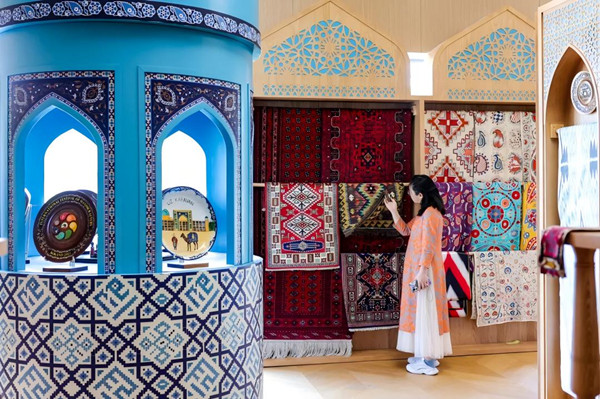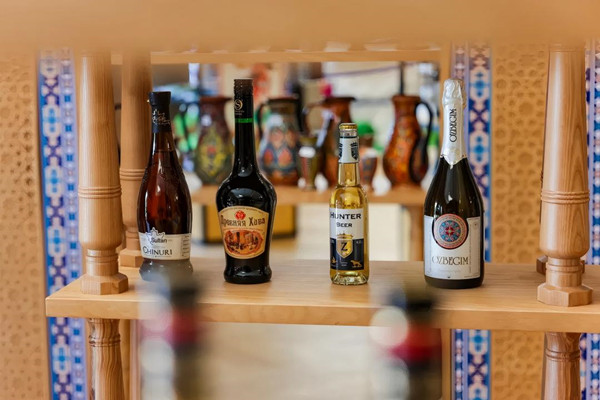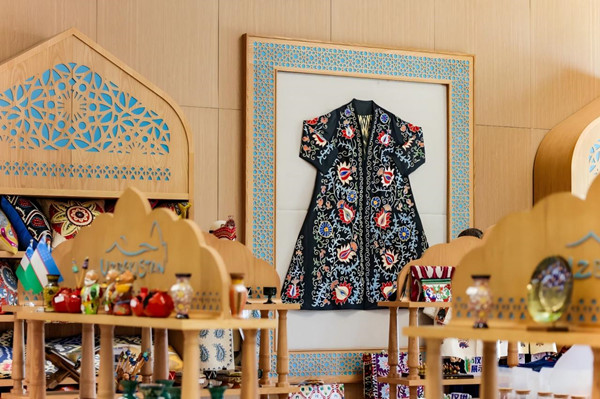Global Hub expands with Uzbekistan Pavilion, boosting Silk Road E-commerce cooperation
The Global Hub in Waigaoqiao area of Shanghai's Pudong New Area has recently welcomed the Uzbekistan Pavilion, marking a significant expansion in its Silk Road E-commerce partnership network.

An Uzbekistan Pavilion is set up at the Global Hub in Waigaoqiao. [Photo/WeChat ID: pdnews]
This development not only deepens economic and cultural ties between China and Uzbekistan but also accelerates the construction of the Silk Road E-commerce cooperation pilot zone's central functional area.
The Uzbekistan Pavilion showcases a variety of local handicrafts, specialty foods, and other products, offering a glimpse into the country's rich cultural heritage. This move is part of Uzbekistan's broader strategy to tap into China's vast consumer market, facilitated by the Global Hub's platform.

Local wine is displayed at the Uzbekistan Pavilion. [Photo/WeChat ID: pdnews]

Distinguished handicrafts and clothes are showcased at the Uzbekistan Pavilion. [Photo/WeChat ID: pdnews]
With 34 national and regional centers already in place, the Global Hub is a vital hub for attracting global goods and promoting international trade. In 2024, it facilitated trade transactions worth over 400 million yuan ($55.55 million) through imports. Plans are underway to add pavilions from Russia and the United Arab Emirates, expanding the partnership network to 15 countries.
The Global Hub aims to become a new window for Silk Road E-commerce cooperation, assisting overseas countries in accessing the Chinese market while promoting Chinese products globally. Leveraging the institutional innovation advantages of the China (Shanghai) Pilot Free Trade Zone, it continues to innovate and serve as a pivotal platform for international trade.
 Contact Us
Contact Us

 Brilliant light show to illuminate Huangpu River
Brilliant light show to illuminate Huangpu River Maple leaves paint splendid scenery in Pudong
Maple leaves paint splendid scenery in Pudong Appreciate alluring lotus blossoms in Pudong's Century Park
Appreciate alluring lotus blossoms in Pudong's Century Park New pedestrian street boosts Pudong's night economy
New pedestrian street boosts Pudong's night economy 


